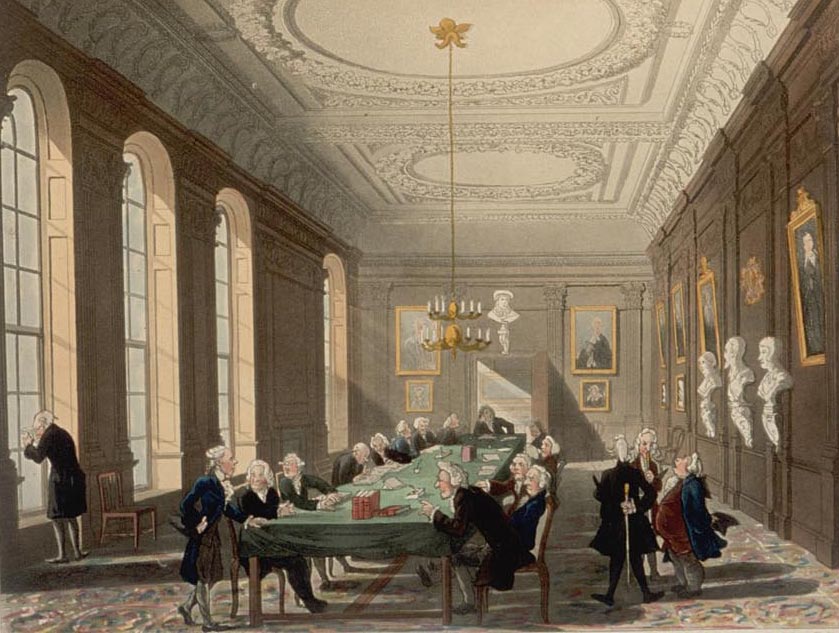|
Royal College Of Physicians
The Royal College of Physicians of London, commonly referred to simply as the Royal College of Physicians (RCP), is a British professional membership body dedicated to improving the practice of medicine, chiefly through the accreditation of physicians by examination. Founded by royal charter from King Henry VIII in 1518, as the College of Physicians, the RCP is the oldest medical college in England. The RCP's home in Regent's Park is one of the few post-war buildings to be listed at Grade I. In 2016 it was announced that the RCP was to open new premises in Liverpool at The Spine, a new building in the Liverpool Knowledge Quarter. The Spine opened in May 2021. History The college was incorporated as "the President and College or Commonalty of the Faculty of Physic in London" when it received a royal charter in 1518, affirmed by Act of Parliament in 1523. It is not known when the name "Royal College of Physicians of London" was first assumed or granted. It came into use a ... [...More Info...] [...Related Items...] OR: [Wikipedia] [Google] [Baidu] |
Medical Royal College
In the United Kingdom, some Commonwealth realm, Commonwealth realms and Republic of Ireland, Ireland, a medical royal college is a professional body in the form of a royal college responsible for the development of and training in one or more medical speciality, medical specialities. United Kingdom and Ireland Standards and guidance They are generally charged with setting standards within their field and for supervising the training of doctors within that speciality, although the responsibility for the application of those standards in the UK, since 2010, rests with the General Medical Council. In the United Kingdom and Ireland most medical royal colleges are members of the Academy of Medical Royal Colleges (AoMRC) are listed below, with their postgraduate faculties (some of which are independently members of the academy) and institutes. The Academy of Medical Royal Colleges itself has one faculty of its own - the Faculty of Medical Leadership and Management. International role Th ... [...More Info...] [...Related Items...] OR: [Wikipedia] [Google] [Baidu] |
Christopher Merret
Christopher Merret Fellow of the Royal Society, FRSFRCP(16 February 1614/1615 – 19 August 1695), also spelt Merrett, was an England, English physician and scientist. He was the first to document the deliberate addition of sugar for the production of sparkling wine, and produced the first lists of British birds and butterflies. Life Merret was born in Winchcombe, Gloucestershire on 16 February; Hunter gives the year of his birth as 1615, which may be 1614 Old Style and New Style dates, Old Style. In 1632 he matriculation, went up to Gloucester Hall, Oxford (which later became Worcester College); he received his BA from Oriel College, Oriel in 1635, and his BMed and DMed from Gloucester Hall in 1636 and 1643 respectively. Merret then practised medicine in London, becoming Fellowof the Royal College of Physicians in 1651. Three years later he moved to the RCP's premises at Amen Corner (London), Amen Corner near St Paul's Cathedral, as the first Harveian Librarian, for which he ... [...More Info...] [...Related Items...] OR: [Wikipedia] [Google] [Baidu] |
Henry Pierrepont, 1st Marquess Of Dorchester
Henry Pierrepont, 1st Marquess of Dorchester, PC, FRSFRCP(March 16068 December 1680) was an English peer. He was the son of Robert Pierrepont, 1st Earl of Kingston-upon-Hull, and his wife, the former Gertrude Talbot, daughter of George Talbot and Elizabeth Reyner, and cousin of the Earl of Shrewsbury. Career Styled Viscount Newark from 1628, he was member of parliament for Nottingham from 1628 until 1629, and was summoned to the House of Lords in his father's Barony of Pierrepont in 1641. He succeeded his father as 2nd Earl of Kingston-upon-Hull in 1643. During the earlier part of the English Civil War he was at Oxford in attendance upon the King, whom he represented at the negotiations at Uxbridge. In 1645 he was made a Privy Counsellor and created Marquess of Dorchester; but in 1647 he compounded for his estates by paying a large fine to the parliamentarians. Afterwards, Lord Dorchester, who was always fond of books, spent his time mainly in London engaged in the study ... [...More Info...] [...Related Items...] OR: [Wikipedia] [Google] [Baidu] |
John Dee
John Dee (13 July 1527 – 1608 or 1609) was an English mathematician, astronomer, astrologer, teacher, occultist, and alchemist. He was the court astronomer for, and advisor to, Elizabeth I, and spent much of his time on alchemy, divination, and Hermetic philosophy. As an antiquarian, he had one of the largest libraries in England at the time. As a political advisor, he advocated the foundation of English colonies in the New World to form a "British Empire", a term he is credited with coining. Dee eventually left Elizabeth's service and went on a quest for additional knowledge in the deeper realms of the occult and supernatural. He aligned himself with several individuals who may have been charlatans, travelled through Europe and was accused of spying for the English crown. Upon his return to England, he found his home and library vandalised. He eventually returned to the Queen's service, but was turned away when she was succeeded by James I. He died in poverty in London ... [...More Info...] [...Related Items...] OR: [Wikipedia] [Google] [Baidu] |

